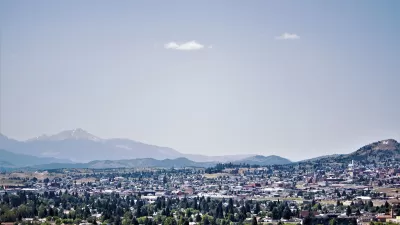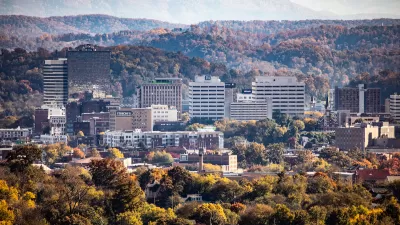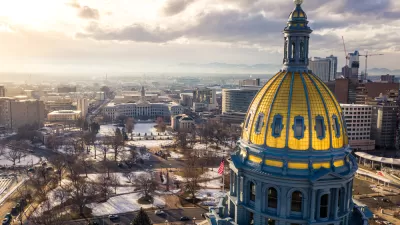Raleigh, North Carolina is the latest city in the United States to relax zoning restrictions in residential neighborhoods as a component of a housing affordability strategy.

"Duplexes and townhomes will now be legal to build by right throughout most of [Raleigh]," reports Anna Johnson.
The Raleigh City Council voted 6-1 to approve the new rules on Tuesday night earlier this week. The changes will "allow different types of housing in traditionally single-family neighborhoods without a rezoning."
Raleigh Mayor Mary-Ann Baldwin, who campaigned on a pro-development housing affordability strategy in 2019, is quoted in an earlier article by Johnson describing the intended goal of the approved rule changes:
“We empathized there would have to be some change to zoning to allow for more housing choice, especially what I call gentle density,” she said. “This is what I call gentle density, and it will allow for more homes to be built in our city. It’s a positive thing.”
Planetizne picked up news of Raleigh's ongoing planning and zoning reform efforts in June, when the topic was parking requirements—after the council voted 6-1 (again) to begin the process of removing parking minimums and changing parking maximums around the city. Planetizen also previewed Raleigh's work toward legalizing missing middle density in January 2020.
Raleigh's zoning and planning reform efforts follow closely on the heals of similar news from Charlotte, in the same state, and Charlottesville, in neighboring Virginia.
FULL STORY: Raleigh approves ‘gentle density’ measure to add duplexes, townhomes to neighborhoods

Alabama: Trump Terminates Settlements for Black Communities Harmed By Raw Sewage
Trump deemed the landmark civil rights agreement “illegal DEI and environmental justice policy.”

Planetizen Federal Action Tracker
A weekly monitor of how Trump’s orders and actions are impacting planners and planning in America.

The 120 Year Old Tiny Home Villages That Sheltered San Francisco’s Earthquake Refugees
More than a century ago, San Francisco mobilized to house thousands of residents displaced by the 1906 earthquake. Could their strategy offer a model for the present?

LA’s Tree Emergency Goes Beyond Vandalism
After a vandal destroyed dozens of downtown LA trees, Mayor Karen Bass vowed to replace them. Days later, she slashed the city’s tree budget.

Sacramento Leads Nation With Bus-Mounted Bike Lane Enforcement Cameras
The city is the first to use its bus-mounted traffic enforcement system to cite drivers who park or drive in bike lanes.

Seattle Voters Approve Social Housing Referendum
Voters approved a corporate tax to fund the city’s housing authority despite an opposition campaign funded by Amazon and Microsoft.
Urban Design for Planners 1: Software Tools
This six-course series explores essential urban design concepts using open source software and equips planners with the tools they need to participate fully in the urban design process.
Planning for Universal Design
Learn the tools for implementing Universal Design in planning regulations.
Ada County Highway District
Clanton & Associates, Inc.
Jessamine County Fiscal Court
Institute for Housing and Urban Development Studies (IHS)
City of Grandview
Harvard GSD Executive Education
Toledo-Lucas County Plan Commissions
Salt Lake City
NYU Wagner Graduate School of Public Service





























